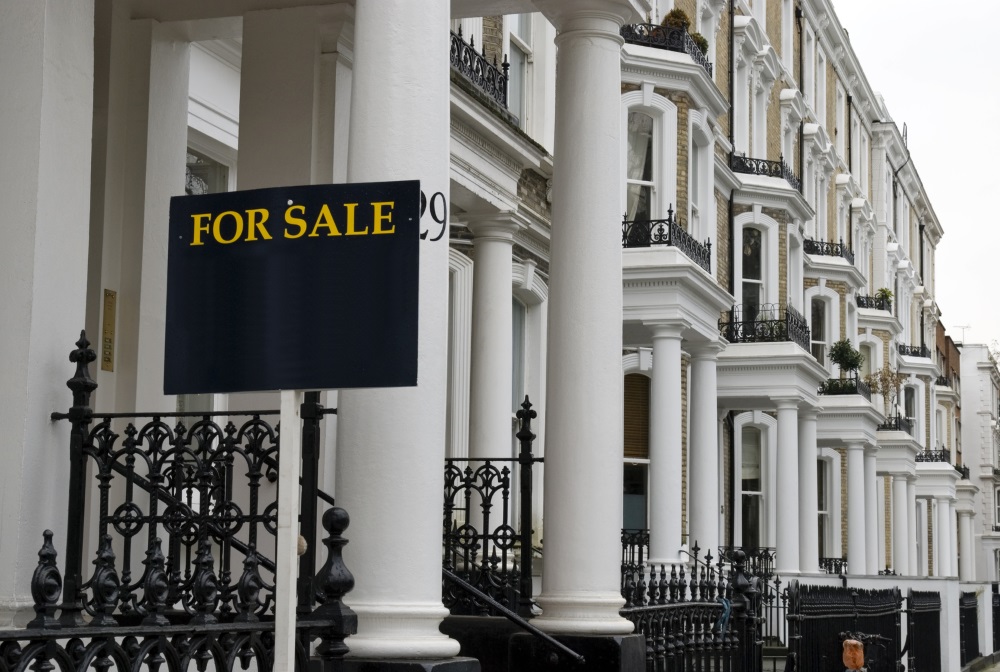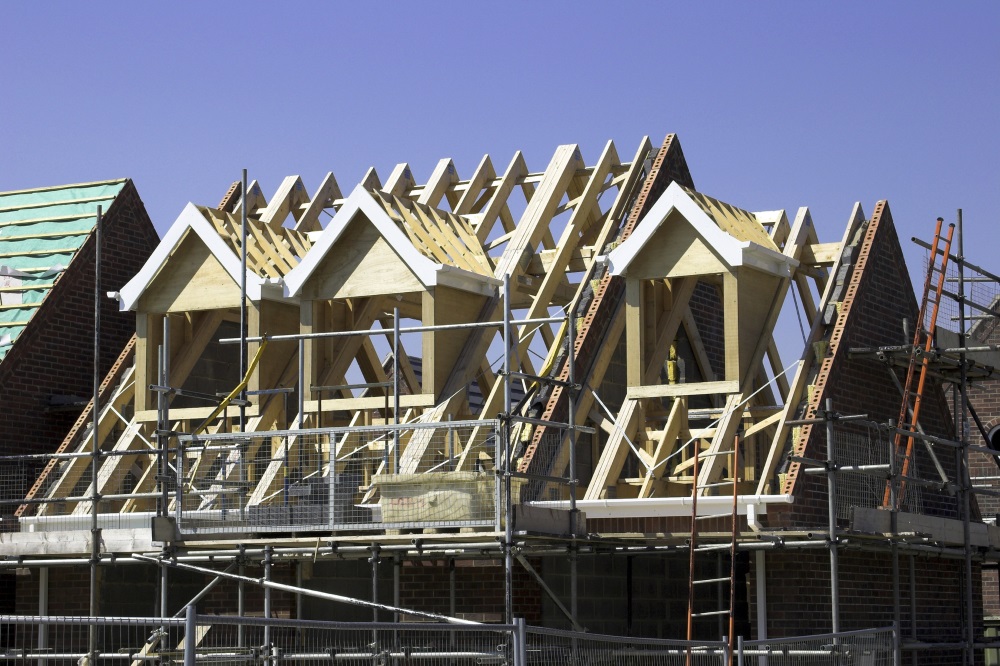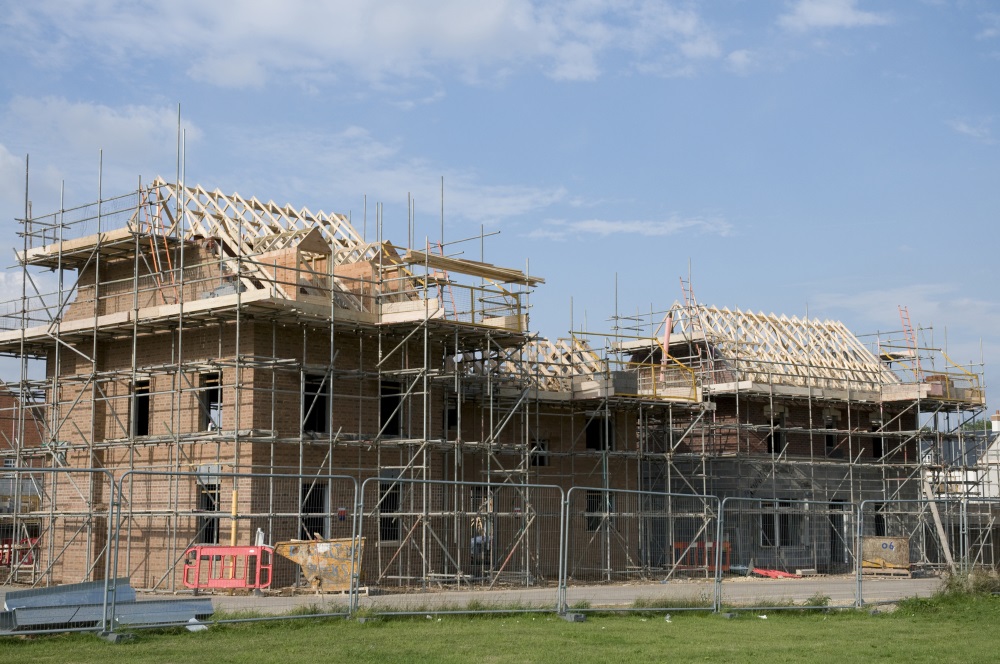
22 leading property professionals share their reactions on the historic vote to leave the European Union in our first British spotlight.
It could not have been much closer, but Britain has decided to leave the EU. The weeks of political wrangling have seen many highs and lows. The pound has peaked and now dipped to levels not seen since 1985. Britain is entering a new dawn. A time where some uncertainty will reign in the short-term, but a time where the UK may eventually grow stronger with its new found independence. But what does this mean for the property sector? How will homeowners, house-hunters and investors react in the UK and overseas? In our first British spotlight, property professionals share their predictions, forecasts and the impact on the housing sector.


1. Robin Paterson, Joint Chairman & CEO of United Kingdom Sotheby’s International Realty (www.sothebysrealty.co.uk)
“So far the risk of Brexit has primarily affected Sterling, making it cheaper against other currencies. In housing market terms that is more important in London, where overseas investors are most prevalent, but the effect is ambiguous. On the one hand, property in the UK becomes cheaper to buy in overseas currency. But on the other, any existing property owned in the UK will be worth less when converted back into local currency. Depending on what investors believe will happen if the UK does leave the EU that will affect their buying and selling behaviour. But the UK, has and will continue to benefit from its attractiveness in terms of its stable political and legal systems and its standing as a premier global city.
“For the mainstream domestic market and uncertainty about the UK’s economic prospects outside the EU, it could unsettle funding markets. That would affect the cost and availability of mortgages. On top of that if the currency continued to fall, there would be increased pressure for a rise in interest rates, also affecting mortgage costs. But if the release from EU regulations does indeed lead to stronger economic growth in the UK in the longer term, that would be good news for the housing market.”


2. Chris Ireland, JLL UK CEO (www.jll.com)
“Even if it is effectively ‘business as usual’ for the UK in terms of trade and legislation until 2018, such a major change will inevitably create uncertainty in the economy and real estate markets. In the event of a well-managed exit these impacts will be largely confined to the UK.
“In the short term we may see a weakening in occupier demand. The impact on rents may be limited by tight supply, but activity will be adversely hit while initial uncertainty about direction and timing continues. Investor sentiment may also remain subdued in the short to medium term. For property markets, the initial correction may be most severe but should be followed by an upturn as opportunities re-emerge in UK core markets and benefits of weak sterling are recognised. Sentiment and relative pricing will be key.
“Much will depend on the speed of negotiation, the wider political picture and whether a clear direction of travel and timetable for an EU exit is established early on.”


3. Louisa Brodie, Head of Search and Acquisitions at Banda Property (www.bandaproperty.co.uk)
“We’ve already had enquiries from interested investors in the States, Europe, Africa and even the Far East, who are seeking long-term property investments. “They aren’t concerned with short-term price dips, it’s the currency discounts that interest them. In a weakening global economy, London’s property market is still seen as a safe haven long-term.”
“Suppressed demand from needs-driven sellers is likely to result in more property coming onto the market over the next few weeks as vendors come to terms with the fact that now is as good a time as any to move home. However, demand from domestic investors is likely to remain subdued until the end of the year, as they sit tight to see how far prices fall, how the wider economy fares and whether interest rates rise before they commit to a purchase.
“Banda Property predicts a temporary fall in capital values of 5% by the end of August, recovering within 12 months.”


4. Martin Walshe, Head of Residential, Cheffins (www.cheffins.co.uk)
“Now is the time to stop procrastinating, we know we are leaving the EU and our property market will soon return to its former strength. Both buyers and vendors waited with bated breath to hear the referendum result, and now that we know we are leaving the EU, those who have sat on the fence will be returning to the market in their droves. While we will probably experience a short period of adjustment, the UK property market is incredibly resilient and investment in housing will remain a cornerstone of our market, whether we are a part of Europe or not. Despite 2016 being the year of the referendum, we have recently seen the best market ever experienced, and a Brexit will not affect this. Cambridge in particular will continue to be an international centre for innovation and education, and our booming market will return to its former strength. Residential markets have always been influenced by uncertainty and we are now entering an economic climate which has never been experienced before, so the only strategy is be back to business as usual and brace ourselves for the busy period which is to come.”


5. Martin Robinson, Director of Sales at Hunters Property Group (www.hunters.com)
“The impact Brexit will have on the UK property market will be difficult to determine until the negotiations between the UK and EU are finalised. We expect some clients to pause to familiarise themselves with this news, but in the past we have found the UK property market has been very resilient against changes in legislation. At the end of the day, bricks and mortar will always be a good investment option in the UK.”


6. Charles Curran, Principal, Maskells Estate Agents (www.maskells.co.uk)
“The market has been filled with uncertainty over the past couple of years and now that we have voted to leave, this draws a line under a major obstacle in getting the Prime and Prime Central London market back on its feet. There is no doubt that the slowdown in the market before the Referendum was as a result of the Chancellor’s ill-conceived increase in Stamp Duty, and as such we do not expect to see an increase in prices. We expect the domestic buyers to remain subdued, perhaps opting for rental accommodation (rents being low for the time-being due to oversupply and high cost of acquisition), but we do expect more interest and volumes from overseas buyers. An unwanted consequence of leaving the EU is that our currency will depreciate, making property cheaper in net terms compensating for the high SDLT in Prime and Prime Central London. Why would they want to buy here? For the same reasons they always have – London is the greatest city in the world to live in – and we are not biased!”


7. James Bailey, Chief Executive, Henry & James (www.henryandjames.co.uk)
“I am delighted with the vote to leave the EU.” My heart said remain for stability, but my head persuaded me to vote out. I firmly believe that the British public’s decision will strengthen the UK economy going forwards. There may be some instability in the short-term, but like a divorce, there is always a rough patch.
“What does this mean for the London property market? If the weakening of the pound continues, investors from aboard will return to our shores. We have the fifth largest economy in the world. Buyers want to invest in booming Britain and that is not going to change overnight.
“In one year’s time, we will not reminisce about the nostalgic days of the EU. It’s just not going to happen. Now it is time to set a clear direction for the country, the economy and the British public. Let’s make Britain great again.”


8. Simon Deen, Director New Homes, Aston Chase (www.astonchase.com)
“After two months of the most divisive debate in recent political memory, the British public have proved the bookies wrong yet again, and voted to leave the EU. The truth is that no one is really sure what will happen next. Sterling, which hit a 2016 high only yesterday, could well fall, making London property more attractive to foreign investors who for some time have seen the British government try to ‘tax’ them out of London. Are we better off out? Only time will tell. In the short term, buyers will see the market as being in their favour, and it is arguably the developers and vendors who will now decide where we are heading.”


9. Ben Horne, Middleton Advisors – country team (www.middletonadvisors.com)
“Despite the sense that leaving the EU and the time it will take to negotiate our departure will generate uncertainty and create a drag on the property market, in reality life goes on and young families will continue to leave London in search of country life, along with factors such as inheritance and debt. Those factors that create ‘churn’ in the market cannot wait for two years (the estimated re-negotiation period) and so it’s likely to return to normal activity levels after a short pause.”


10. Andrew Langton, Chairman, Aylesford International (www.aylesford.com)
“The referendum has divided families similar to the Spanish civil war, exposed a number of duplicitous politicians, caused mayhem amongst bookmakers and desecrated markets. Since the Chancellor’s hike in SDLT coming into effect in April 2016, the London residential market has been very quiet and subsequently the indecision caused by the referendum brought it to a virtual standstill in Q1 and Q2 particularly at the higher end.
“So where do we go from here? After the Chancellor has introduced an emergency budget in which he increases income tax, corporation tax, inheritance tax and reduces the defence budget but maintains overseas aid, the vote to leave could now see us heading for absolute chaos.
“We should remember that we continue to have the highest stamp duty rates in Europe to factor into some of our now overpriced properties and within ten months a number of non-doms will be leaving town. This is not a time for the faint hearted.”


11. Adam Challis, Head of Residential Research at JLL (www.jll.com)
“The London housing market will feel the effects of the Vote Leave decision more deeply. The interconnected trading relationship between London and the rest of Europe means the implications are more complex. This will exacerbate the uncertainty for London’s homeowners. Paradoxically, investors may well identify opportunities in this market over the short-term, particularly international purchasers that can benefit from the currency arbitrage that has opened up by a weaker pound sterling.
“While the focus leading up to the referendum has been on the UK's international trading relationships, we are deeply concerned that domestic politics will now be the key risk to the housing market. Regardless of the referendum outcome, the UK has a deep housing supply imbalance and concerted attention from politicians to deliver credible, lasting solutions to the supply conundrum is desperately needed. Protracted infighting within the political parties will only harm the UK economy and any chance of a timely recovery from the expected economic slowdown.”


12. Anil Varma, Managing director, HarrisonVarma (www.harrisonvarma.co.uk)
“As an employer, we are concerned for the welfare and peace of mind of our 150+ employees comprising 17 nationalities, including eight different European countries. It is extremely unhelpful that there has been no clarity or planning for the future. I would urge an early announcement to allow our staff, many of whom have established themselves in London making a home for their families, to plan ahead for their future.
“We are now heading for a long period of huge uncertainty. We do not know how this will affect our buyers – both UK & overseas, or our European employees. We need early decision allowing us to plan our business. When we started our latest development project - Buxmead in The Bishops Avenue, Stamp Duty was 4% and it has now increased to 12% plus an additional 3% for second home owners. This coupled with the changing rules for non-doms and now Brexit means we can never plan ahead as this is a time of major change and will have a long lasting impact on the British economy.”


13. Mark Parkinson, Director, Middleton Advisors - London team (www.middletonadvisors.com)
“I think we can only stick to ‘knowns’ as we are now in uncharted territory. As far as our world is concerned British and non-European buyers’ decisions to buy are unlikely to be massively affected by Brexit in the long term- no-one yet knows how this will affect European buyers. In terms of the UK prime housing market, we expect little or no effect on the country market as people tend to take a long term view when buying country houses. The prime London market depends on so many factors it is difficult to make a prediction. In the short term one of the main certainties is that trading levels are likely to drop off markedly as buyers ‘wait and see’ what happens.”


14. Alex Newall, Managing director, Hanover Private Office (www.hanoverprivateoffice.com)
“Stay calm, there is still a property market. We all need somewhere to live as a family or a business - the world will not stop. We are closing deals, despite a measured Brexit in two years’ time. This is not a time to for a knee-jerk reaction.
“We can no longer use past data accurately to help predict the future. Over the next two years, until Brexit actually happens, gradually the rule book will be re-written on asset prices in the UK. Yield hunters, e.g. pension funds, will have to be careful to protect their underlying asset value over the next two years and pre-planned exit strategies will need to be considered. A long term strategy on safe, stable income streams will attract major interest. Sectors such as student housing, assisted living (old peoples’ homes), and supermarkets (i.e. basic ‘need’ businesses) will see more interest than luxury/‘want’ markets.
“Despite many already pricing Brexit into their strategies, the pound will continue to be volatile and until it stabilises, foreign investment may pause before it pounces on the property markets. We will see the volume of transactions increasing over the next six months.
“As the GBP continues to be volatile and the USA’s economy is so strong, we could start to see American buyers being a force in the market, something we have not seen for a long time. We have formed new relationships with agencies from Los Angeles and New York ready to capture this wave of inward investment to the UK.”


15. David Cox, Managing director of Association of Residential Letting Agents (www.arla.co.uk) and Mark Hayward, Managing Director of National Association of Estate Agents (www.naea.co.uk)
“The outcome of today’s EU referendum will create a period of uncertainty among homeowners, buyers, investors, landlords and developers. We can expect international investors to look a lot harder at the UK as a market; this will have a consequential impact upon the house building sector as investment may be stalled.
“In the short term, we believe that both prices, and rents, will remain stable, but we cannot be certain about the next quarter as political instability, and market unrest, could lead through into prices in the housing market. We believe that the UK housing market is resilient, as is the supply chain that drives it. But as we indicated in our Brexit report last month, the bigger impact may well be in the skills necessary to drive UK housing development, and this is now a major concern for UK buyers and renters.”


16. Ian Westerling, MD of Humberts (www.humberts.com)
“The choice by the British public to leave EU will now be followed by lengthy negotiations as politicians thrash out what post-Europe looks like for Britain. This continued uncertainty is likely to keep the brakes on the property market for the foreseeable future. The ‘must movers’ will still move in line with their personal circumstances – upsizing, downsizing or moving for schools. In contrast, many investors and less committed buyers are likely to sit tight to see the economic and social impact of today’s announcement. Housing market professionals will need to brace themselves for a ‘new norm’ in market dynamics, underpinned by the ongoing unknowns. The ‘wait and see’ period could lead to some price adjustments; the onus will be on the Government to act swiftly to avoid the property market becoming paralysed which would have a knock-on impact on the rest of the economy.”


17. Mark Harris, Chief Executive of SPF Private Clients (www.spf.co.uk)
“In the short term, not much will change. Mortgage availability is good, banks want to lend and interest rates are at all-time lows. Swaps are falling on the back of the outcome and it's likely to put back any interest rate rise further still.”


18. John Forrester, EMEA Chief Executive of Cushman & Wakefield (www.cushmanwakefield.co.uk)
“The property sector has probably followed the EU referendum more closely than any other industry and has witnessed the impact of the uncertainty and speculation in the run up to the vote.
“While the decision of the UK electorate is now confirmed, a period of further uncertainty is unavoidable as businesses, the financial markets and the political establishment in the UK, Europe and globally come to terms with what this means.
“Clearly, the impact of this decision will be felt beyond the UK’s shores as the UK is the EU’s third largest market by population. We are therefore entering a period of unprecedented change as markets and sectors adapt. What is clear is that in any scenario there will always be opportunities and those will become clear in the weeks and months ahead.”


19. And the view from Spain: Alejandra Vanoli, Managing Director of Mallorca Sotheby's International Realty (www.mallorca-sothebysrealty.com)
“The impact that Brexit will have on the European property markets will be hard to determine until the negotiations between the UK and the EU are finalised. This of course will be most prevalent in the Spanish market due to the high concentration of British expats. However, these changes will undoubtedly need some time to take effect. Despite this, the Balearics are still a very attractive second home destination to British buyers due to our short flight time from the UK, secure lifestyle, warm climate and favourable legal framework for expats looking to invest in the property market.”


20. Martin Dell, Director of Kyero.com
"We are optimistic here at Kyero. Brits buy in Spain for the wonderful climate and bohemian lifestyle. That hasn’t changed and houses in Spain will always have a pull for the British purchaser.
"There was a very healthy market for Spanish property before Spain joined the Eurozone and there'll still be a thriving market once Britain leaves. Property prices in Spain remain relatively low, and this is still an excellent time to make a shrewd investment in the Spanish property market."


21. Justine Stewart, Ski Property Analyst, Nidski (www.nidski.com)
"As a chalet or apartment in a ski resort is a discretionary purchase for most buyers, the strength and stability of currency is a key factor. Sterling has fallen against the Euro after the Brexit vote, but the pound is still trading at a level well above the exchange rate seen during the global credit crunch. However, if Sterling remains volatile against the Euro or Swiss Franc, British buyers may hold off buying in the alpine areas. The Brits are a significant part of the market in the Alps, but they are not the only one. Ski property is also attractive to investors from outside the EU zone, including Switzerland, the USA and the Middle East - and they could benefit if the Euro also comes under pressure against other currencies. Further down the line, UK buyers who wish to raise finance for a purchase in the EU may see tighter restrictions on how much they can borrow and less preferential terms, affecting their ability to buy. Given this unknown, now is the time to raise funds for a ski property purchase. Ultimately, ski properties across Europe will always be desirable for a long-term investment or second home."


22. And finally, Francois Marchand, Director Erna Low (www.ernalowproperty.com)
“The pound was predicted to fall straight after the OUT result. It is actually at the same level as it was back in mid-February. We are sure that there will be no change in buying costs for those looking to buy property in France, and there are no planned changes in taxations for the income made from property rentals, as well as no difference in capital gain tax - as of 1st of January 2015 a single rate was applied for EU and Non-EU members.”
“In time, UK residents might be limited regarding the amount of GBP investments and the amount of wealth that can be sent abroad when a new government is in. A safe investment risk strategy has always been to diversify your portfolio. It will make no difference for our clients investing in a French property – whether they have bought, are planning to buy, or are currently in the process of buying a property in France. The mountains were there before EU existed, and will be there tomorrow to welcome international property investors, part of the EU or not.”

Stuart was the Telegraph's Property Editor for five years, where he transformed their online platforms. Now he is an editor, writer and digital strategist for Everything Overseas. He specialises in places, prices and properties in the world of real estate. He is also a director of Everything Overseas, overseeing the direction of the channel.
More articles by Stuart Penney | View all our authors
Or you can read more about your chosen country:
